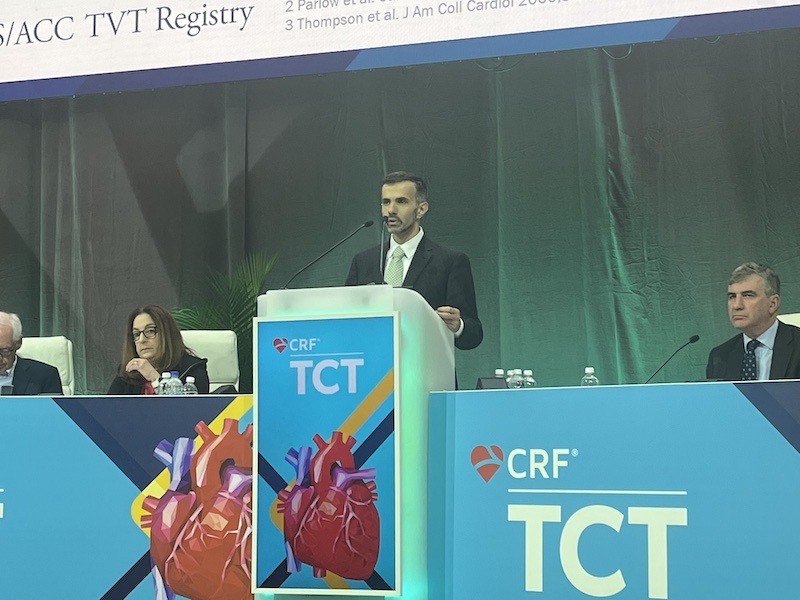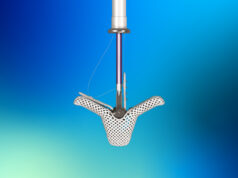
Analysis of data from the Society of Thoracic Surgeons/American College of Cardiology (STS/ACC) TVT Registry found that most patients with severe mitral regurgitation (MR) and cardiogenic shock (CS) undergoing mitral transcatheter edge-to-edge repair (TEER) achieved successful MR reduction, and that successful repair was associated with lower mortality and heart failure (HF) hospitalisations at one year.
Findings were presented during a late-breaking clinical science session at the 2022 Transcatheter Cardiovascular Therapeutics meeting (TCT, 16–19 September, Boston, USA) by Mohamad Alkhouli (Mayo Clinic, Rochester, USA) and published simultaneously in the Journal of the American College of Cardiology (JACC).
Alkhouli’s JACC paper acknowledges that there is a growing recognition of the high prevalence of concomitant valvular heart disease in patients with CS. Several studies have shown that moderate-severe mitral regurgitation (MR) may be present in as many as one in five patients admitted with CS, the paper notes, and is associated with mortality rates of up to 60%.
Mitral TEER is an established therapy for patients with significant MR, the JACC paper notes, however, it adds that data addressing the role of TEER in CS patients with significant MR has been limited to smaller cohorts, albeit with promising outcomes.
Using data from the STS/ACC TVT Registry from 22 November 2013 to 31 December 2021, researchers assessed outcomes among a total of 3,797 patients undergoing TEER in the USA who met at least one of the pre-specified inclusion criteria for CS due to the presence of cardiogenic shock, inotrope-use, or mechanical circulatory support prior to TEER. Among this group, 3,249 (85.6%) patients achieved device success defined as MR reduction of ≥1 grade and a final MR ≤ moderate (2+).
The primary endpoint was the impact of device success on clinical outcomes—specifically, mortality and HF admissions at one year. At one-year post procedure, device success was associated with significantly lower all-cause mortality (34.6% vs. 55.5%, adjusted-HR 0.49, 95%CI 0.41-0.59, p<0.001), and a composite of mortality and HF admissions (29.6% vs. 45.2%, adjusted HR 0.51, 95%CI 0.42-0.62, p<0.001).
“This analysis examined the characteristics and outcomes of TEER in patients with cardiogenic shock,” said Alkhouli. “Our findings not only show that TEER in patients with CS can achieve successful MR reduction the majority of the time, but also that device success in this high-risk population is associated with a better one-year survival rate as well as fewer heart failure hospitalizations. Randomised trials on the role of TEER in patients with cardiogenic shock are needed to establish this as a potential therapeutic option.”













